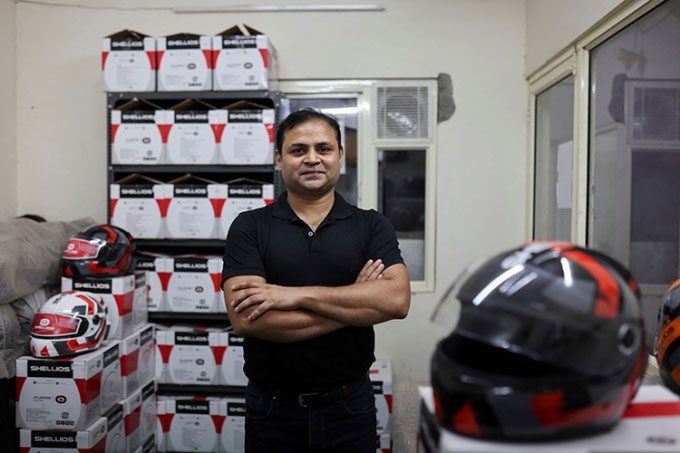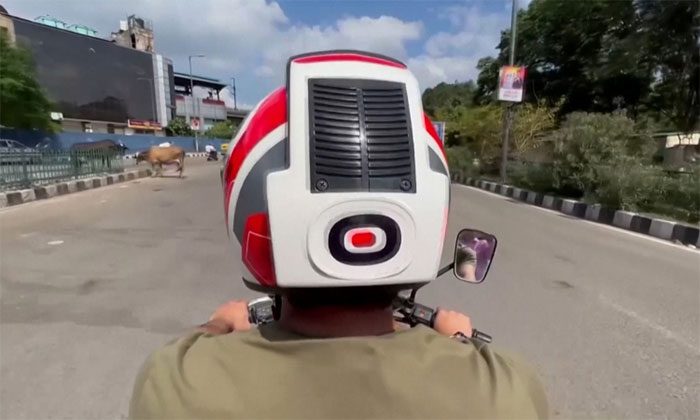Shellios Technolabs’ helmets help motorcyclists protect their health while navigating the traffic-filled, polluted streets.
Shellios Technolabs’ air-filtering helmet. Video: Reuters
A man named Rahul weaves through the chaotic streets of New Delhi, India, wearing a special helmet equipped with a filter and a fan at the back.
“You don’t feel the pollution outside at all when wearing this helmet. It feels like breathing in your own home. It’s really comfortable,” Rahul shared with Reuters.
The development company Shellios Technolabs claims this is the first helmet of its kind in the world, and tests show it can eliminate over 80% of airborne pollutants.
Electrical engineer Amit Pathak, the founder of Shellios, first manufactured the helmet in a basement in 2016 after reading news about the suffocating air pollution in New Delhi caused by dust, vehicle emissions, and smoke from industrial waste burning in neighboring states. Last year, India had 35 of the 50 most polluted cities in the world.

Amit Pathak, founder of Shellios Technolabs. (Photo: Reuters)
In 2019, Pathak began selling helmets equipped with replaceable filters and a rechargeable battery-powered fan that can operate for 6 continuous hours.
The Indian Ministry of Science and Technology praised Shellios’ helmet product for providing “fresh air for riders,” while state agencies have invested thousands of USD into Shellios.
Pathak sees a “huge market” in India with an estimated annual demand of up to 30 million helmets. He mentioned that the company has also attracted interest from Southeast Asian countries such as Malaysia, Thailand, and Vietnam.

Special helmet equipped with a filter and a fan at the back.
“There are over 200 million two-wheelers on the roads in India, and about 10% are added each year. That’s a vast market. Therefore, our immediate goal is to create a suitable product that can serve a portion of that market,” Pathak stated.
Shellios declined to disclose production or sales figures, but their air-filtering helmet is retailing for 4,500 rupees (56 USD) on the company’s website, nearly four times the price of a standard model.
Weighing 1.5 kg, which is heavier than existing helmets, Shellios stated they have partnered with a major manufacturer to develop a lighter version using thermoplastic materials instead of fiberglass, which could also reduce production costs. The new version is expected to hit the market in the coming months, possibly around winter in India.


















































